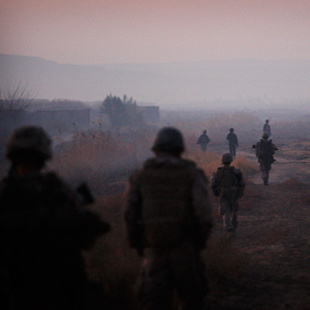Security at the Expense of Neighbors

 IRD: Afghanistan is a landlocked country and during the past three decades this geopolitical defect has actuated Afghan leaders to rely on an extra-regional power to mitigate the consequent weakness. This has been a conspicuous trait in Afghanistan’s foreign policy, during and after the Cold War.
IRD: Afghanistan is a landlocked country and during the past three decades this geopolitical defect has actuated Afghan leaders to rely on an extra-regional power to mitigate the consequent weakness. This has been a conspicuous trait in Afghanistan’s foreign policy, during and after the Cold War.The news of Afghanistan mulling a strategic defense accord with the United States fits within this historical framework. So far, limited details have been made public. President Karzai’s Security Advisor Rangi Dadfar Spanta’s comments seem to be a pre-test: they have thrown a stone into the water to see how powerful the returning waves are. Both Washington and Kabul are waiting for international and regional feedback before taking their next step.
Afghanistan has every right to sign strategic pacts that it deems as enforcement of its security. However, if the output of these pacts turns out to be construction of Washington’s military bases in its territory, that would appear to hurt the long-term interests of regional states. Yes, it may be a bilateral concern (as the Marxist Afghan regime also argued when it invited Soviet troops into the country in the late 1970s), but Afghan statesmen can not rule their own country at the expense of their neighbors’ security. Iran, with 950 kilometers of shared borders with Afghanistan, has had enough of the 3-decade turmoil in this country, hosting 2-million refugees, and battling drug cartels. The last ten years should have proven to Afghans by now that the presence of an extra-regional military will do nothing but complicate the affairs. Forty countries are now present in Afghanistan, but the Taliban and other extremist Islamist groups are active, pestering foreign troops with their sporadic attacks and convincing President Karzai to court them, calling them ‘brothers’.
The Afghan nation should also not be removed from this equation. Afghans are a proud people, and if they wanted to obey the command of a foreign country, they would have put up with the Soviets. The Mujahedeen’s sacrifices during the invasion of Afghanistan in the 1980s have proven that this is not what the Afghan nation wants.
Mohammad Ebrahim Taherian is Iran’s former ambassador to Afghanistan.

